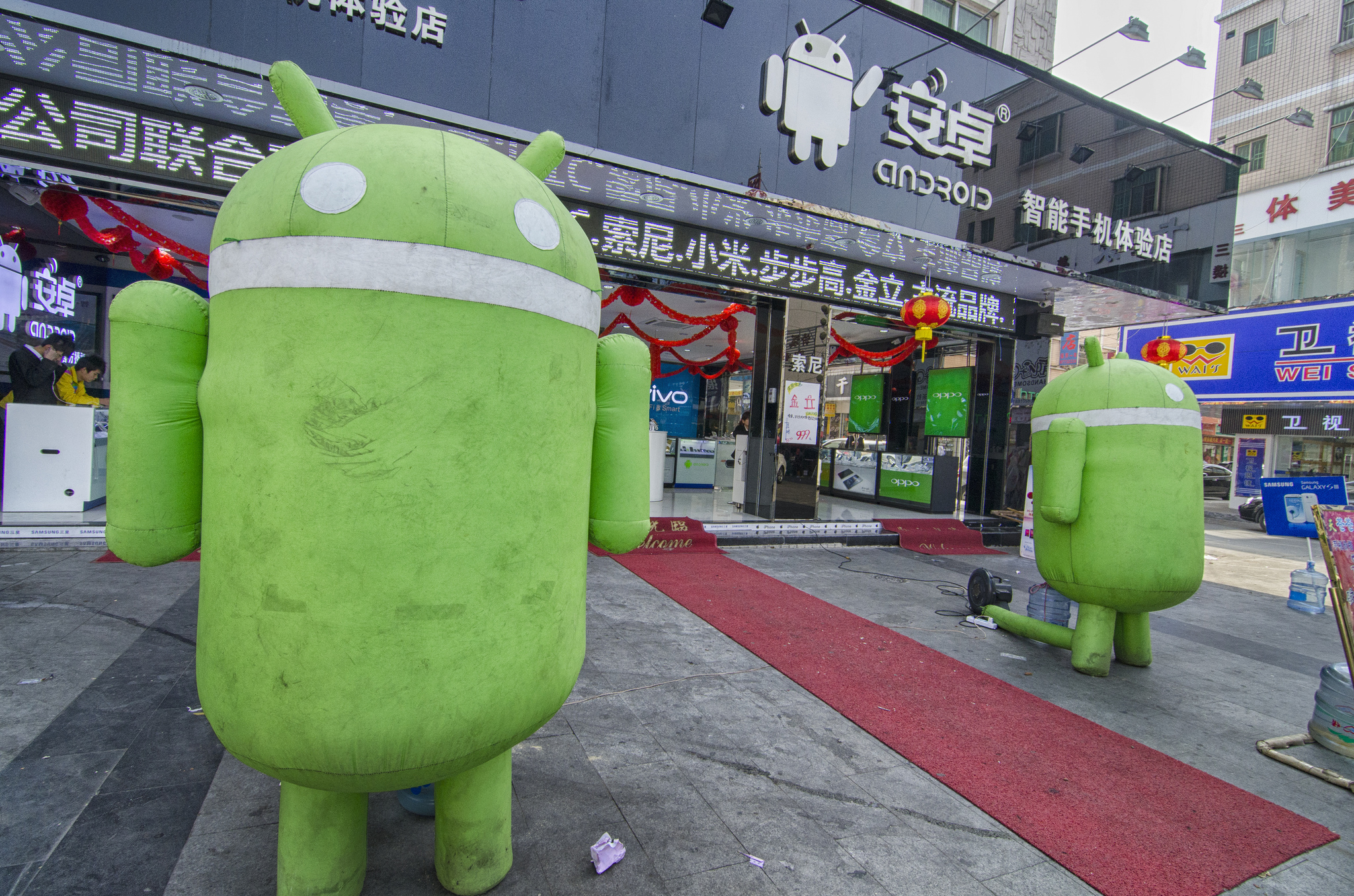When a car has a major flaw, like a potentially lethal airbag, it gets recalled. Same for a coffeemaker, or a surfboard, or a prescription drug. But when that major flaw is in a product’s software — like a huge exploit that puts literally a billion consumers’ privacy and personal data at risk — there’s no universal process out there for remedying the situation. Do we need one? And if so, how can we get one? [More]
explanations
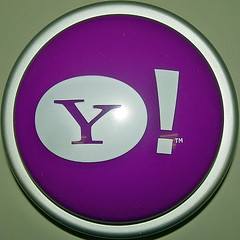
Yahoo Apologizes For Accidentally Blocking Protest Emails
Yahoo email users complained that the system blocked messages about a Wall Street protest, accusing the company of censorship. Via Twitter, Yahoo says that there was no intentional censorship and the blockage was due to an unintentional spam filter setting that has now been fixed. [More]
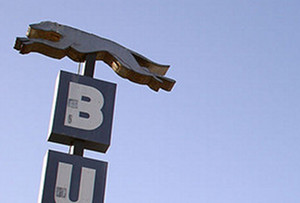
Don't Give Greyhound Tickets As Gifts
If you buy a Greyhound bus ticket for someone else, Greyhound will charge you a flat $18 “gift ticket fee,” which must be the worst named fee in the history of transportation. On short rides, like a one-way trip from Cambridge, MA to Hartford, CT, it bumps the price up from $22 to $40. [More]
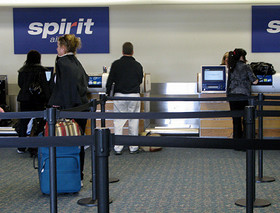
Spirit CEO Justifies Carry-On Bag Fees
Executives love to justify price increases or staff reductions by hauling out the customer service argument, because then any complaint you make can be framed as self-defeating. (“Don’t you want better service?”) On that note, Spirit’s CEO Ben Baldanza told travel blogger Christopher Elliott last week that the new carry-on bag fee is really intended to reduce gate delays. Remember to send a thank-you card to Baldanza. [More]

Citibank Freaks Out Customers With Weird 7-Day Rule On Withdrawals, But It's Not As Devious As It Looks
Some Citibank customers recently received notice that the bank reserved the right to require 7 days written notice before authorizing a withdrawal on checking accounts. (It’s also on page 23 of Citi’s Client Manual [PDF].) As you can imagine, this freaked some people out. A Citibank rep quickly moved to clarify the rule, and he pointed out that it’s actually required by federal law for certain types of accounts, and it’s not unique to Citibank, and they don’t intend to enforce it. [More]
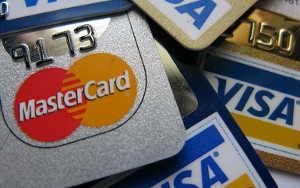
Get Up To Speed On What The CARD Act Will Do To Credit Cards
In just a little over a week, the CARD Act will go into effect, and a new set of rules will apply to credit card issuers. Here’s a great summary of what will change and what won’t, so you’ll know what to expect. For instance, did you know that cards issued to business entities rather than individuals are exempt? [More]
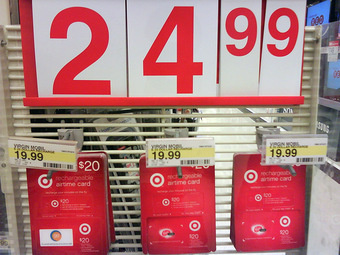
Target Employee Explains Discounter’s Apparent Craziness
A mysterious Target employee has come forward to share a closely guarded secret with the readers of Consumerist. The secret of why Target is so freaking crazy. [More]
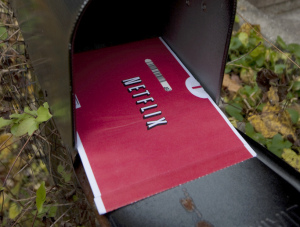
Netflix CEO Explains Why They Made The 28-Day Delay Deal
Earlier this month, Netflix made a deal with Warner Bros. to delay new DVD releases for 28 days. Over at Hacking Netflix, the CEO of the company goes into some detail on why he approached Warner Bros. to begin with (it was his idea, not theirs), and why he thinks it will work out better for everyone except those customers who signed up expecting all new releases all the time. [More]
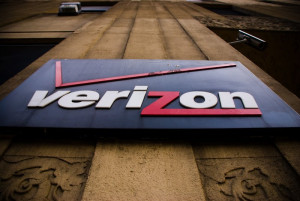
FCC Commissioner Says She's Not Happy With Verizon's ETF And Billing Explanations
At least one official with the FCC is not impressed by Verizon’s latest explanations of its Early Termination Fees (ETFs) and Mobile Web billing practices. Commissioner Mignon Clyburn released a statement (pdf) last night where she called Verizon’s explanation “unsatisfying” and “troubling,” and she closed with the fighting words, “I look forward to exploring this issue in greater depth with my colleagues in the New Year.” [More]
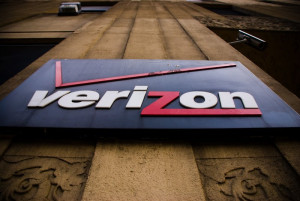
Verizon Denies It Charges You $2 Each Time You Mistakenly Press A Certain Button On Your Phone
Last month, David Pogue at the New York Times published a tip from a self-described Verizon employee. The employee accused Verizon of deliberately rigging its system to trap customers whenever they accidentally press the “Get It Now” or “Mobile Web” buttons on their phones–even if they cancel the operation immediately, they’re charged a fee of $1.99 each time. Both Pogue and the FCC asked Verizon to explain why this happens. Verizon’s response: it doesn’t, and Pogue and the hundreds of people who wrote in to confirm this practice are all crazy. [More]

Consumer Reports And New York Times Ask Why There's So Much Air In Packages
Padding chip bags with air is a pretty well-understood practice by now–supposedly it helps prevent the chips from being crushed. But what’s the purpose of similar packaging tricks in frozen fish, or boxes of instant rice? After a recent Consumer Reports article questioned the amount of air in packages at the grocery store, New York Times reporter Andrew Adam Newman asked two of the manufacturers for an explanation. [More]

What Does "Hostile Takeover" Mean?
Does the phrase “hostile takeover” give you a mental picture of Vikings swarming into an office building and taking over by brute force? The term is in the news due to proposed takeovers of Cadbury and Barnes & Noble, but that’s not quite what the term means. Marketplace’s Paddy Hirsch and his trusty whiteboard explain.

VIDEO: Derivatives Are Sort Of Like A Pre-Ordered Turkey
The business and financial news are full of something called “derivatives.” But, okay, what is that? You’re not the only one who’s wondering. That’s why Paddy Hirsch from the public radio program Marketplace put together a whiteboard, some stick figures, and a bunch of metaphorical turkeys to explain it all to us.

Ryder Refunds Customer $120 For Forcing Him Into U-Haul's Arms
Jesse, who wrote to us last week to complain about Ryder’s broken guarantee, has contacted us again with a follow up. We also spoke with Ryder directly to ask how their “Guaranteed Availability” promise actually works, so that future customers know what to expect.

What Does Health Care Reform Mean For You?
The debate over health care reform has devolved into scaremongering with death panels and rationed care. What’s really going on, and what does it really mean for you and your family? Inside, the New York Times breaks down the competing bills…

Comcast Says Lightning Caused Emergency Alert System To Show QVC
Remember Jim? His Comcast cable box randomly responded to the emergency alert system (EAS) by tuning in to QVC. According to a source inside Comcast, rogue lightning strikes set off the EAS, even though there wasn’t an emergency. Two things happen when the EAS activates: the cable box switches to a local channel, and Comcast replaces the local programming with an alert. In Jim’s case, the box switched to the emergency channel—which happened to be QVC—but since there wasn’t an emergency, there was no special broadcast. So what can you do next time your cable box independently declares an emergency?

GoDaddy Doesn't Outsource Customer Service
Last week, we posted that a popular web hosting company—GoDaddy, although we didn’t name it at the time—provided a strange customer service experience to a commenter. Cyberguy was contacted via phone by someone from their “Office of the President” after emailing them, but then Cyberguy couldn’t get their rep to state clearly which company he was representing. Cyberguy was rightly suspicious. Was GoDaddy outsourcing its own executive customer service?


